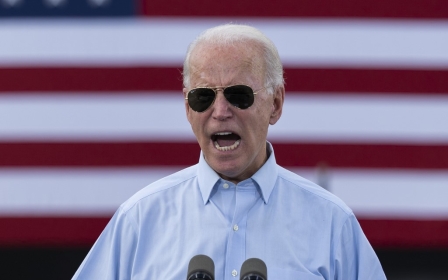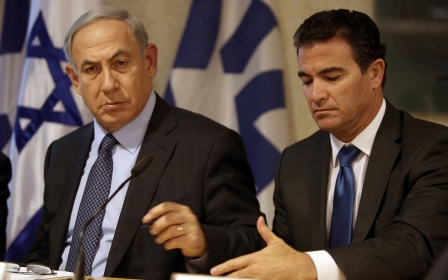Covid-19: Hundreds of ultra-Orthodox Israelis protest over lockdown rules
Hundreds of members of Israel's ultra-Orthodox community have taken to the streets of the country to protest the imposition of lockdown rules to tackle the Covid-19 pandemic.
Protesters scuffled with police in the city of Bnei Brak, while a 41-year-old bus driver was hurt after he was attacked with pepper spray by demonstrators, who proceeded to set his bus on fire, according to Reuters and eyewitnesses who posted video footage on Twitter.
One police officer reportedly fired in the air to repel crowds throwing stones after feeling his life was in danger. Police said that smaller confrontations with ultra-Orthodox protesters also broke out in several other towns, including the port city of Ashdod.
Police also said they came under attack after dispersing a large, illegal wedding in the city of Beit Shemesh. A number of the wedding guests reportedly threw items at officers and set fire to garbage cans.
Much of the anger has stemmed from ultra-Orthodox attempts to reopen religious schools and seminaries, which had been closed by the Covid-19 lockdown measures.
New MEE newsletter: Jerusalem Dispatch
Sign up to get the latest insights and analysis on Israel-Palestine, alongside Turkey Unpacked and other MEE newsletters
Ultra-Orthodox parties have long been political allies of Prime Minister Benjamin Netanyahu's Likud party.
Passenger flights banned
On Sunday, Israel announced it would be banning passenger flights in and out of the country from Monday evening for a week.
Netanyahu's office said in a statement that the ban on flights would last until the end of January.
"Other than rare exceptions, we are closing the sky hermetically to prevent the entry of the virus variants and also to ensure that we progress quickly with our vaccination campaign," said the statement.
The country's borders have largely been closed to foreigners during the pandemic, with only Israeli passport holders allowed entry.
The country has been under a third national lockdown since 27 December. Critics say the government has mishandled the crisis, lacking a clear long-term strategy and allowing politics to cloud its decisions.
The government had intended to lift the lockdown at the end of January but Education Minister Yoav Galant, speaking on Ynet TV, said it was too early to know if schools would reopen next month.
Israel expanded its rapid vaccination drive on Sunday to include late teens in what the government described as an effort to enable their attendance at school exams.
The vaccines were initially limited to the elderly and other high-risk categories, but are now available to anyone over 40 or - with parental permission - those between 16 and 18.
Israel has the world's fastest vaccine distribution rate. With regular imports of Pfizer Inc. vaccines, it has administered at least one dose to more than 25 percent of its 9 million population since 19 December, the Health Ministry says.
Netanyahu announced on Sunday he would propose to parliament a new aid package for businesses, households and unemployed Israelis hit by the crisis.
Middle East Eye delivers independent and unrivalled coverage and analysis of the Middle East, North Africa and beyond. To learn more about republishing this content and the associated fees, please fill out this form. More about MEE can be found here.




